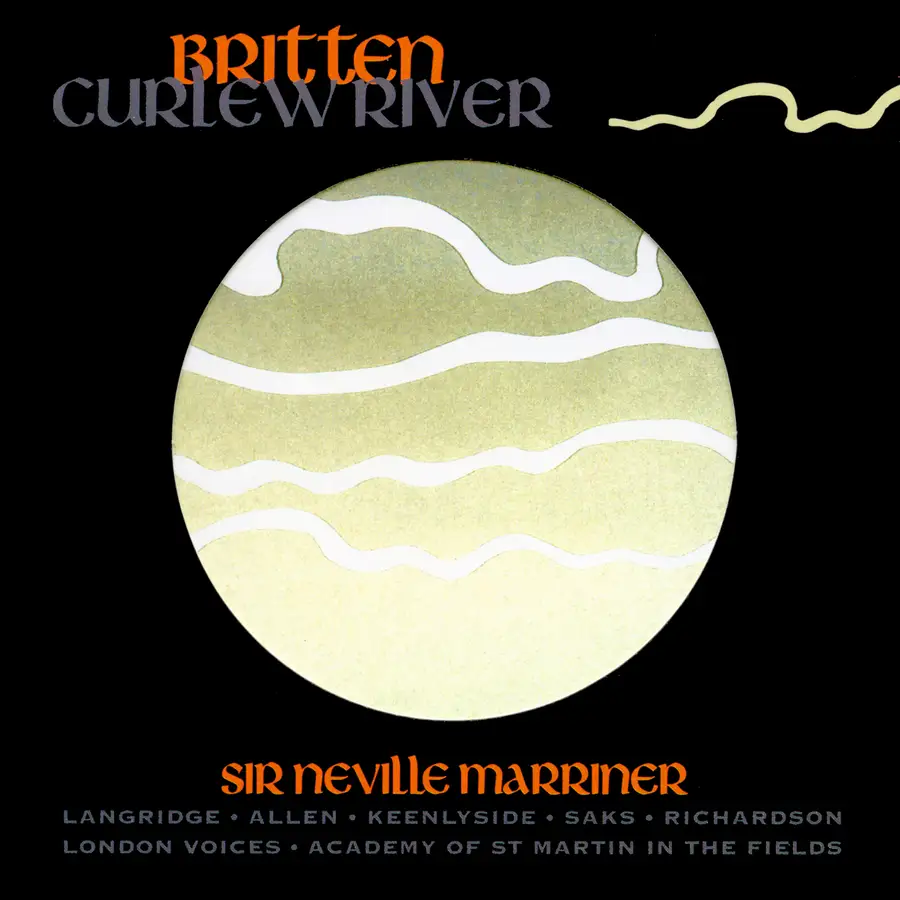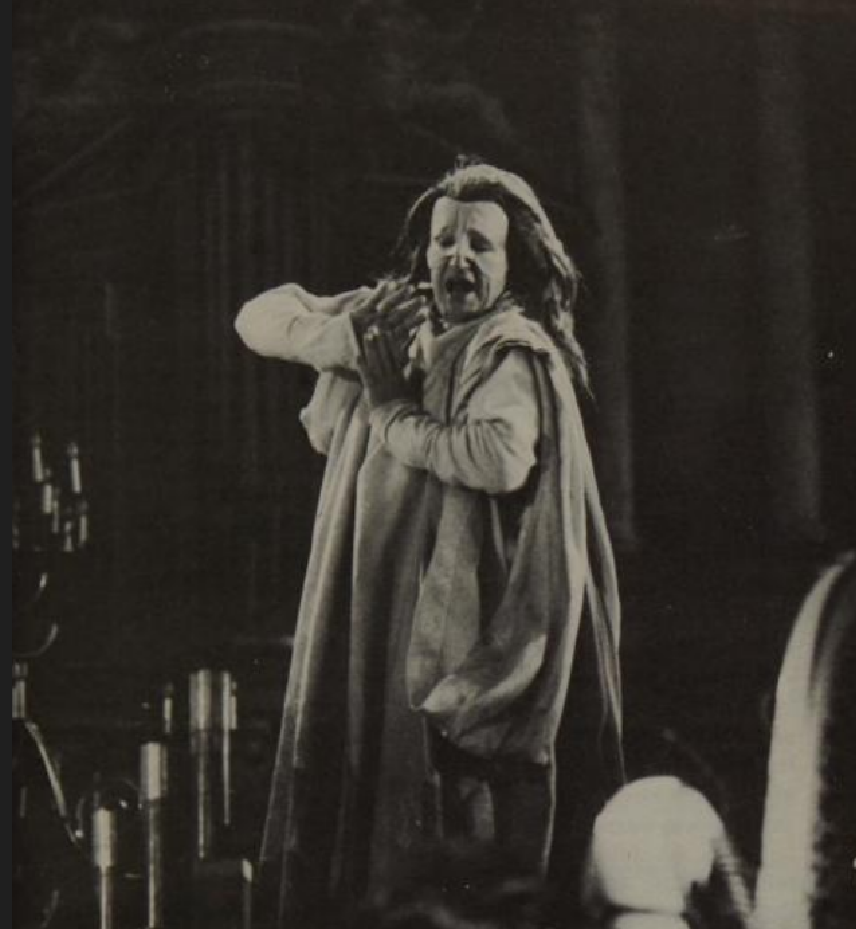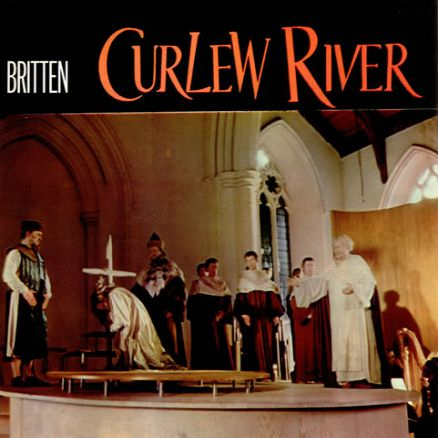Britten Journeys to Japan
Much like Tony Curtis did in The Bad News Bears.
Today is Easter Sunday in the Year of Our Lord 2025, thus I have taken to the first of Benjamin Britten's Church Parables for my listening.
Curlew River takes its genesis from the Noh theater of Japan, based on Britten's viewing of Jūrō's Sumidagawa specifically. The hand-print of that country's theatrical style is written all over this score. From the heterophony of the full ensemble at its most Far-East sounding, to the chamber instrumentation representing the Noh shibyoshi made of individual string, wind, and pitched percussion instruments, as well as the voicings of the soloists, tackled by five male singers regardless of character gender.
Curlew River is a tragic tale, and it is conveyed more through telling rather than experiencing the action in the here and now. Noh presentations are notoriously slow, and indeed I was initially worried by some of the singing from The Traveler:
Here is the bank of the Curlew River,
And now I have reached the ferry,
I see the ferryboat about to leave.
And now I have reached the ferry,
I see the ferryboat about to leave.
I thought I was going to be walked through every action in song, but alas, this ends up not being the case. While the original Japanese wouldn't have had it, Christian allusions and religious subjects are involved as well, including the raising of The Spirit of the Boy through prayer, in addition to the bookended Abbey scenes telling of a Christian Mystery and miracle.
The composer notably associates instruments with characters - a horn to call The Ferryman, the flute and piccolo for The Madwoman and the Curlew birds, harp for The Traveler, double-stopped double bass for the trudging of the ferry, cluster-chord organ for The Fens, bells for The Spirit of the Boy, plus ever-present pitched drums throughout. Despite the small instrumental ensemble and singing forces, I am reminded of how Britten separated the sacred and secular in his War Requiem.
On the music front, this is pure modern and forward-looking Britten. The harmonies are all based in tonality, but the sparseness of Noh is on full display, as is the composer's penchant for dissonance vs. consonance. Rarely do all of the instruments play together, and when they do, there is a free, improvisatory, aleatoric feeling, equally given to the voices.
If you can find a score, Britten is quite detailed with sketches of the stage (shown on a cover art picture below), costumes for the various roles (with Noh masks), and the movements of characters with props. This musical tale was obviously quite special for the composer, and it comes through in the mood of this production, without ever becoming too glitzy, maudlin, or pastiche.
In 1966, Britten himself recorded Curlew River, and remained the only performance available until this 1996 one arrived with Sir Neville Marriner at the helm. Why the long wait? My guess is it all lays on the indispensable presence of the composer, plus the inimitable singing of tenor Peter Pears as The Madwoman and John Shirley-Quirk as The Ferryman. As always, I recommend Britten's own recordings wholeheartedly.
On this later Philips recording, Philip Langridge takes Pears' role as The Madwoman, Thomas Allen singing The Ferryman, and Simon Keenlyside is The Traveler. Langridge has been exhaustive in recording Britten's vocal works, usually alongside Steuart Bedford, and indeed he is a fine successor, although he is keen enough to take different approaches than Pears did on record. As splendid as Langridge is, it is Keenlyside who impresses the most, while Allen is still plenty commanding as a Ferryman.
On the instrumental side, Britten had Cecil Aronowitz on viola, Osian Ellis on harp, Philip Ledger on organ, not to mention John Culshaw producing the whole affair. Aside from Timothy Brown on horn, I am unfamiliar with Marriner's hand-picked team from the Academy of St. Martin in the Fields, and it wasn't to be too long until Philips merged with Decca.
Anyone with any interest in the music of Benjamin Britten needs to hear Curlew River. It is another divergence for the composer into new compositional territory. Where should you start? Probably Britten's recording, but Marriner's succeeds on many of the same levels, just without the special authority of Britten and Pears behind it.
Works
Curlew River
Soloists
Philip Langridge as The Madwoman
Thomas Allen as The Ferryman
Simon Keenlyside as The Traveler
Gidon Saks as The Abbot
Charles Richardson as Spirit of the Boy
Jaime Martin, flute / piccolo
Timothy Brown, horn
Rachel Bolt, viola
Christopher Laurence, double bass
Skaila Kanga, harp
Tristan Fry, percussion
John Constable, organ
Performers
London Voices
Academy of St. Martin-in-the-Fields
Sir Neville Marriner, conductor
Label: Philips
Year: 1998
Total Timing: 70.00
Curlew River might not be the most obvious choice for Easter listening, but it is an effective Church Parable nonetheless.
Sure, Britten's own recording on Decca is probably the prime choice to hear, but that doesn't lessen the impact of Marriner's performance on Philips.
Plus, I have come to love Philip Langridge's tenor in Britten's music very much, and Simon Keenlyside makes quite an impression.






Comments
Post a Comment